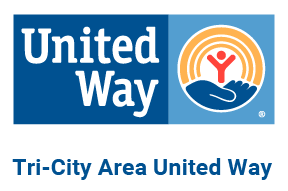From One Love Foundation:
With all the news coverage around Gabby Petito’s disappearance and murder, you may be feeling like many of us at One Love. Sickened and saddened to see another young life lost; wishing that something could have been done to prevent this. Gabby’s death is a tragedy and our hearts are broken for her and those who loved her.
And yet, Gabby is one person and her death is one tragedy. As part of the One Love community, you likely know the statistics – that three women a day are killed by their partners in this country, and more than 1 in 3 women, nearly 1 in 3 men, and 1 in two trans or nonbinary people will be in an abusive relationship in their lifetimes.Unhealthy relationships occur among all races/ethnicities and socio-economic classes. According to the National Intimate Partner and Sexual Violence Survey (NISVS), 51% of American Indian/Alaska Native women and 41.2% of black/African American women have experienced physical violence by an intimate partner during their lifetime. It’s these statistics that drive us to do this work – helping young people understand the signs of an unhealthy relationship before it becomes abuse. Before the worst possible thing can happen.
Reading the accounts of those who knew Gabby, we can see they saw some signs, but they likely didn’t know what to do or how to respond. Over the last seven years, the question we get asked repeatedly from young people is, “How do I help my friend in an unhealthy situation?” In our workshops, we share tangible steps and advice on this, and today, we are bringing that advice right to your inbox. If you think something might be off in a friend’s relationship, we encourage you to use the tips below to start a conversation with your friend.
We are committed to helping everyone recognize the warning signs of an unhealthy relationship to prevent this story from repeating itself. Y
_________
How to help a friend in an unhealthy relationship
If you’ve noticed signs that a friend’s relationship may be off, you’ve probably wanted to approach them about it. But you may wonder: If I speak up will it push them away? Or worse, will I lose them altogether? While it’s natural to struggle with thoughts like these, know that your support could be exactly what your friend needs to take steps to safely exit their relationship. And remember, always trust your gut – if you think something is off, it probably is. So don’t be afraid to speak up or get help – you could save a life.
1️⃣ Start the conversation on a calm and positive note by being friendly, not preachy. Be supportive and let your friend open up about the situation on their own terms. If you’re having trouble starting the conversation, try using examples from TV shows or movies. It can be easier to talk about unhealthy behavior among fictional characters versus real life.
2️⃣ Focus on the unhealthy behaviors you’ve seen rather than their partner. Don’t label their partner as abusive as it might be hard for them to see their partner that way or cause them to shut down. Instead, ask questions about how a behavior you witnessed made your friend feel. For example, instead of saying “I think your partner is being a jerk, why do you put up with that?” ask “How does it make you feel when they won’t let you go to a party?
3️⃣ Don’t place the blame on your friend. Help your friend understand that what they are experiencing isn’t normal and that it’s not their fault.
4️⃣ Give your friend a list of options and resources to empower them to make their own decision about what to do next. While we can give advice, we can’t force anything. Some of these options include visiting the school counselor or the campus violence prevention center, talking to trusted adult, or even calling the National Domestic Violence Helpline. Ask a trusted adult for help if you aren’t sure what to do. And never try to force your friend into a decision – by demanding that they leave their partner or admit to abuse, you are mimicking the same type of controlling behavior they already experience from their partner.
5️⃣ Expect more conversations in the future. The goal is to let your friend know you care and are available when they need to talk. It’s unlikely that the situation changes from one conversation, so be prepared to have more talks like this in the future.
6️⃣ Remember to take care of yourself too – if you need to distance yourself a little bit, that’s okay. It can be taxing on you, which is why there should be a support system of other people involved. You might need to find someone else to talk to about the situation, like a counselor.
If you aren’t comfortable talking 1:1 with them, consider talking to another friend or parent who might be noticing these behaviors too, and ask them for help with approaching the situation.
For more support please visit the resources on real-time resources page.



